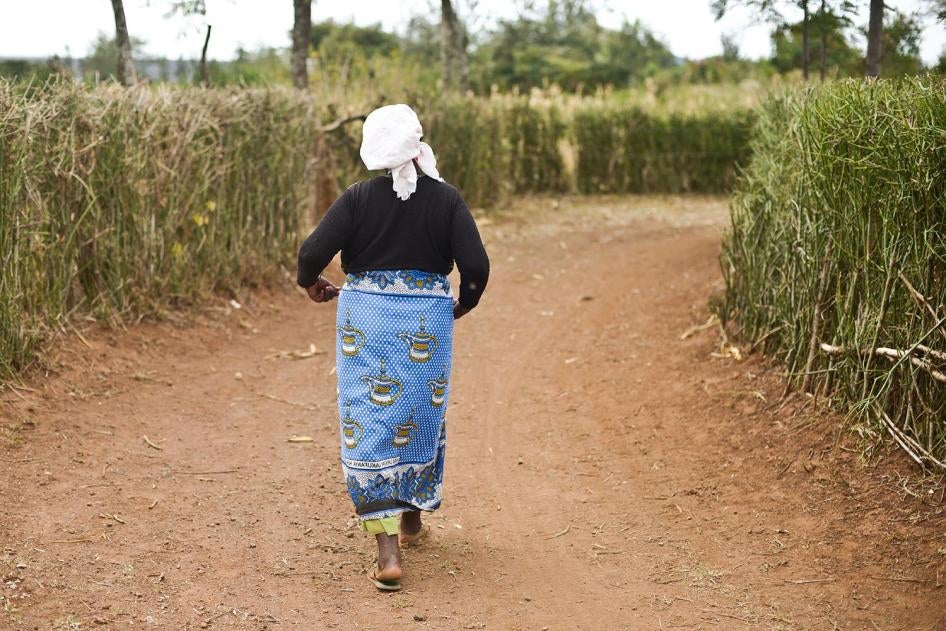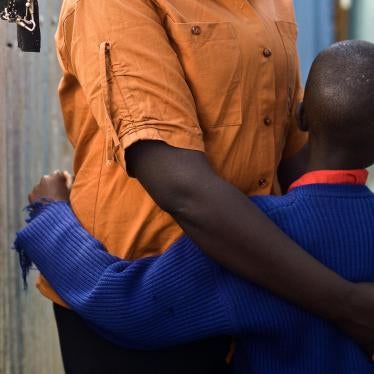His Excellency, Mr. Motoo Noguchi
Ms. Mama Koite Doumbia
Ms. Alma Taso Deljković
Mr. Felipe Raúl Michelini
Ms. Arminka Helić
Board of Directors
Trust Fund for Victims
International Criminal Court
Po Box 19519
2500 CM, The Hague
The Netherlands
RE: Victims of Kenya’s Post-Election Violence in Urgent Need for Assistance
Dear Board Members,
We are writing on behalf of Human Rights Watch, an international organization that conducts research and advocacy on a wide range of human rights issues in more than 90 countries around the world. We document sexual violence in conflict and the impact that gender-based crimes have on victims, their families, and communities. We are writing to urge the Trust Fund for Victims (Trust Fund) to use its assistance mandate to fulfill critical needs in Kenya.
The Trust Fund can provide victims within ICC situation countries much-needed physical and psychological rehabilitation, or material support. The Trust Fund should extend its activities to all nine countries where the ICC has now opened investigations. We are writing to highlight urgent needs in Kenya, particularly in light of our recent research on survivors of Kenya’s 2007-2008 post-election sexual violence.
As you are aware, the violence that erupted in Kenya between December 2007 and February 2008 following a disputed presidential election left at least 1,133 people dead and displaced more than 600,000 people. There was widespread destruction and looting of homes and properties, expulsion of people from their homes, and maiming of individuals. Widespread sexual violence against women and girls—and to a lesser extent, men and boys—was less visible than other abuses, but it was just as devastating. Based on testimonies, reports from human rights groups, and hospital data, an official commission of inquiry into the post-election violence estimated that at least 900 cases of sexual violence occurred, but this is likely an underestimate given the reluctance of survivors to report, the stigma attached to sexual violence in Kenya, and fears of retaliation.
The government provided some limited compensation to some people displaced by the conflict or those who lost property. However, most victims have received no reparations and victims of sexual violence as a group have been entirely ignored. This is deeply unfortunate as there are a wide range of victims who continue to suffer painful physical, emotional, and financial consequences of violations committed against them including, for example, the murder of family members and the loss of their homes.
Our recent report, I Just Sit and Wait to Die: Reparations for Survivors of Kenya’s 2007-2008 Post-Election Sexual Violence, highlights the ongoing physical, mental, social, and economic impact of sexual violence together with other human rights abuses committed against women and girls and men and boys during the post-election violence. This group, which may number in the hundreds and most probably the thousands, has been ignored for the past eight years by the authorities to the extreme detriment of victims’ well-being.
Many sexual violence survivors experienced levels of violence and trauma that have left them with serious physical injuries and illnesses, as well as debilitating mental health concerns. We found, for example, women who had untreated traumatic fistula or under-treated HIV-related infections and women who still find it difficult to walk or stand for long periods. Many women reported symptoms such as anxiety and depression. These problems have often meant that women have been unable to work and have become poorer and less able to care for themselves and their children. Other women have also experienced additional deprivations after being raped, including social stigma. In some cases family members have chased them off their land and out of households. Again deep poverty has often been the result.
Amongst the women we interviewed, 37 became pregnant as a result of rape. Mothers of children born of rape during the post-election violence face additional challenges including ambiguous or angry feelings toward their children who themselves also face stigma, rejection, and physical or verbal abuse by their families. Some children have also been discriminated against when acquiring birth certificates since the mothers could not provide the father’s name. There has been almost no acknowledgement by the government or others of these mothers, their children, or their special needs.
In every interview we found that women and girls are still struggling to live healthy, dignified lives not just because they were raped or subjected to other sexual violence but because they were subsequently failed and are still being failed in their efforts to access health care and justice. Any serious efforts to provide assistance, including options made possible by The Trust Fund for Victims, could help make significant improvements in the quality of life of these individuals.
Victims of sexual violence are far from the only victims who could benefit from the Trust Fund’s active engagement in Kenya. With the recent termination of proceedings against William Ruto and Joshua arap Sang, there is presently no prospect that victims will be eligible for ICC-ordered reparations. We urge the Trust Fund to carry out its assessment of the situation in Kenya as soon as possible, in order to prepare the way for the implementation of assistance projects, including urgently needed physical and mental healthcare and psychosocial support for rape survivors. The assessment should determine how a broad range of victims are identified and connected to services that will be made possible through Trust Fund projects. It should also ensure that survivors are not only consulted but have an active role in the Trust Fund design and planning process.
Please do not hesitate to contact us should we be able to provide any more information.
Sincerely,
Liesl Gerntholtz
Executive Director, Women’s Rights Division
Richard Dicker
Director, International Justice Program
CC: Pieter de Bann, Executive Director, Trust Fund for Victims









